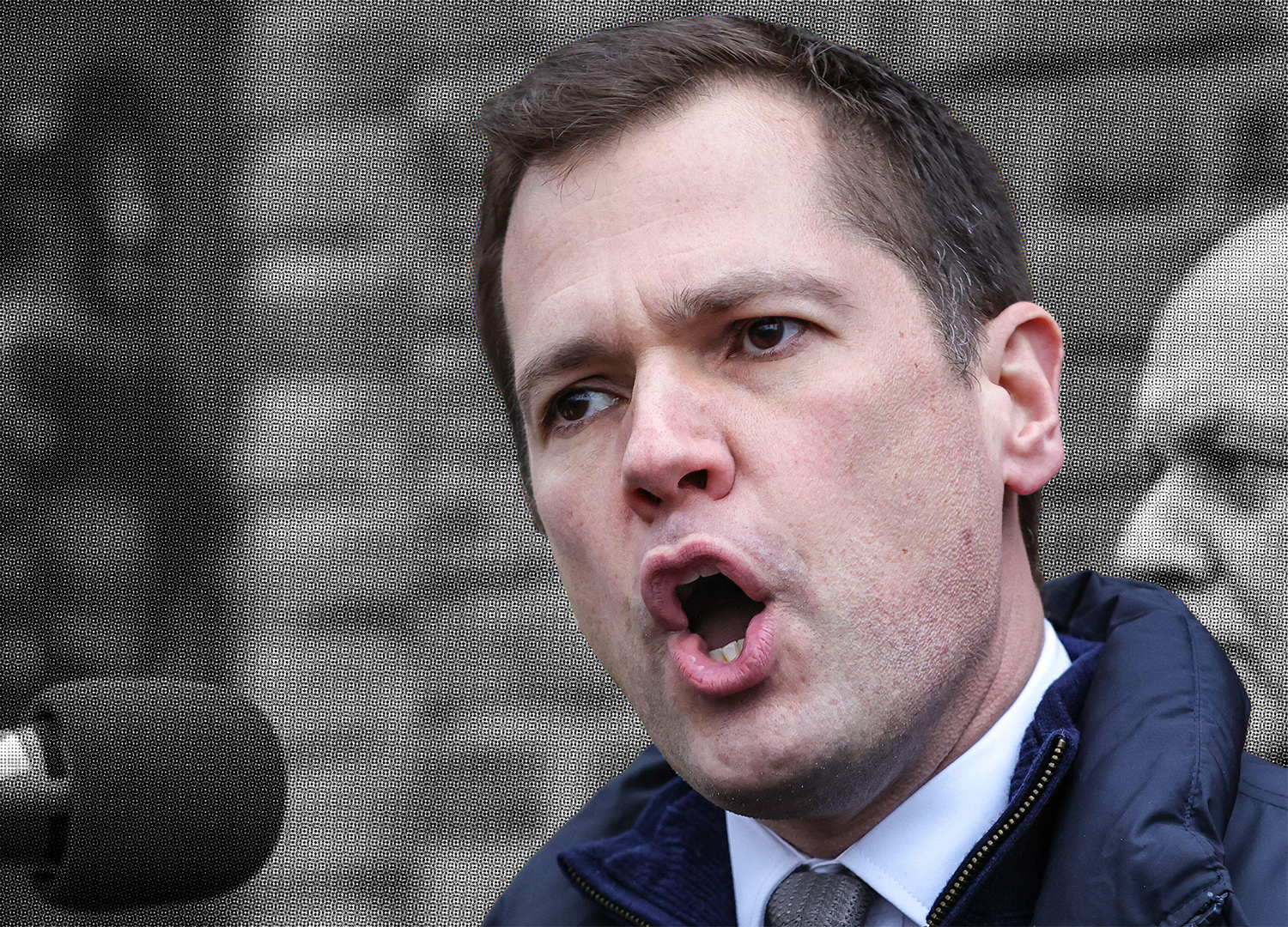
Read our Digital & Print Editions
And support our mission to provide fearless stories about and outside the media system
“With the Conservatives, there are no blacks, no whites, just people.” That was 1983. But it’s hard to imagine Robert Jenrick, the Shadow Justice Secretary, who recently complained Dagenham wasn’t white enough, repeating those words. His radicalisation reflects a wider swing among some right-wing politicians, commentators and think-tankers away from objecting to immigration on (often flimsy or spurious, but not self-evidently irrational) economic grounds to straightforward “blood and soil” nationalism.
Rather than analysing the economic or social impacts of immigration, the new focus is on demographics, and in particular on the shrinking share of the White British population (with the emphasis on white), often described as the “indigenous” population or the “traditional majority”. While this is hardly new – I tracked it from Enoch Powell to Roger Scruton to Douglas Murray some years back – it has recently become much more prominent, most virulently in the overtly racist rhetoric of Matt Goodwin and Douglas Carswell.
So extreme is this, however, it has embarrassed some of the more restrained and thoughtful anti-immigration thinkers, who disavow the racism, but share the broader perspective that the most important thing about immigration is not its economic effects but its impact on British culture and society – and that these are both very large and very negative. Like Goodwin, they argue that demographic change, as measured by the growth in the non-white population, is the key metric.
The challenge for them is of course how they reconcile the apparent contradiction – if the problem is too many people who aren’t white, in what sense does this differ from old-fashioned Powellite racism? Two good recent examples of their attempt to square this circle come from David Goodhart and Ed West, both often regarded as relatively sensible voices on that side of the debate.
Goodhart predicts that within a decade only one in five Londoners will be “natives” (a category he reserves for white British) and states “demographic change on this scale has not happened before…and the precautionary principle suggests it should be handled with care.” West endorses this perspective: “the key issue is David’s point that it is not the 1990s: there has been drastic and dramatic demographic change since then, way beyond what any group of people would find tolerable.”
This framing is meant to sound reasonable and pragmatic: not racism or xenophobia, just realistic, recognising that it is human nature to be uncomfortable with rapid ethnic change. Nor is it particularly new or unusual – indeed it has often been made by politicians of all parties seeking to justify restrictions on immigration without sounding racist. But once you begin to unpack the logic, it becomes clear that the argument is neither neutral nor rational – it prioritises ethnic identity over all the other profound transformations that British society has undergone.
Take Islington, where I live. Since I moved here more than half a century ago, it has indeed undergone profound changes. The population dropped by a quarter – before recovering and growing by a third. It suffered a deep economic downturn, losing almost the entire manufacturing sector before riding the services boom of the 1990s and 2000s. It’s now far richer, but also more unequal, trends reflected above all in the housing market. The population is older, less religious, and much better educated.
Some of these shifts parallel national trends, others reflect local factors. Some of these changes are positive, some negative, and on some opinions might legitimately differ. But they are all profound, and many have direct impacts on the borough as a whole and the economic and social outcomes of its residents, me included. For example, the ageing of the population at a national level affects both the financing and operation of public services and the welfare state, while at a local level it is the key driver of changes in demand for hospitals, schools and social care.
But what about “ethnic change”? Yes, the proportion of Islington’s population who are (like me) white British has dropped from perhaps 85% to about 40%. This change is indeed visible. For West, it is “far beyond what any group would find tolerable.” What he doesn’t and can’t say is why exactly I’m supposed to find it intolerable. Why should I, or my neighbours, be more concerned about what race or ethnicity the kids are at the local school than the quality or financing of local services, or whether the council is successfully balancing the need for more housing with the interests of long-standing residents?
It’s not because ethnic change is uniquely disruptive; there is no plausible argument or theory, let alone evidence, that that is the case. It’s because it’s politically convenient for West and Goodhart to present it as the central issue; identity politics for the right. Some make this more explicit: Conservative MP Neil O’Brien claims that, in places like Islington, “people cannot really integrate into the traditional majority culture – it doesn’t exist any more.”
All this is not overtly “blood and soil,” but the underlying logic – that your ethnicity and ancestry is your primary and most important identity, taking precedence over class, age and everything else – is essentially the same. Rejecting this framing is not about avoiding hard truths; it’s refusing to accept the premise that a changing ethnic mix is a problem, or that whiteness is somehow an essential ingredient of Britishness. The headline on that Conservative election poster – “Labour says he’s black – Tories say he’s British” may have been clumsy and indeed hypocritical in many respects. But today’s Conservatives would do well to remember why they thought they needed to say it.
ENJOYING THIS ARTICLE? HELP US TO PRODUCE MORE
Receive the monthly Byline Times newspaper and help to support fearless, independent journalism that breaks stories, shapes the agenda and holds power to account.
We’re not funded by a billionaire oligarch or an offshore hedge-fund. We rely on our readers to fund our journalism. If you like what we do, please subscribe.


